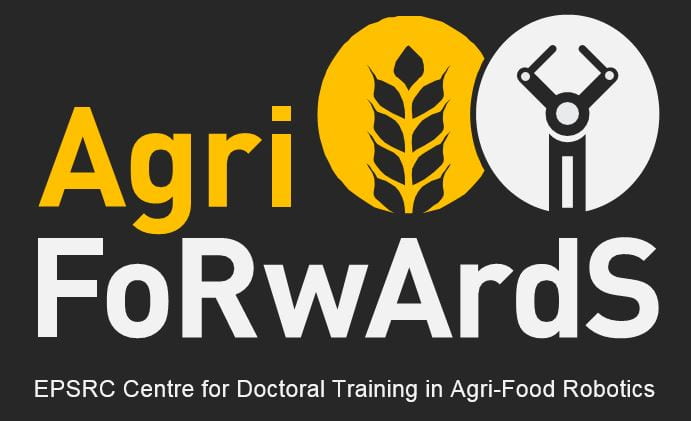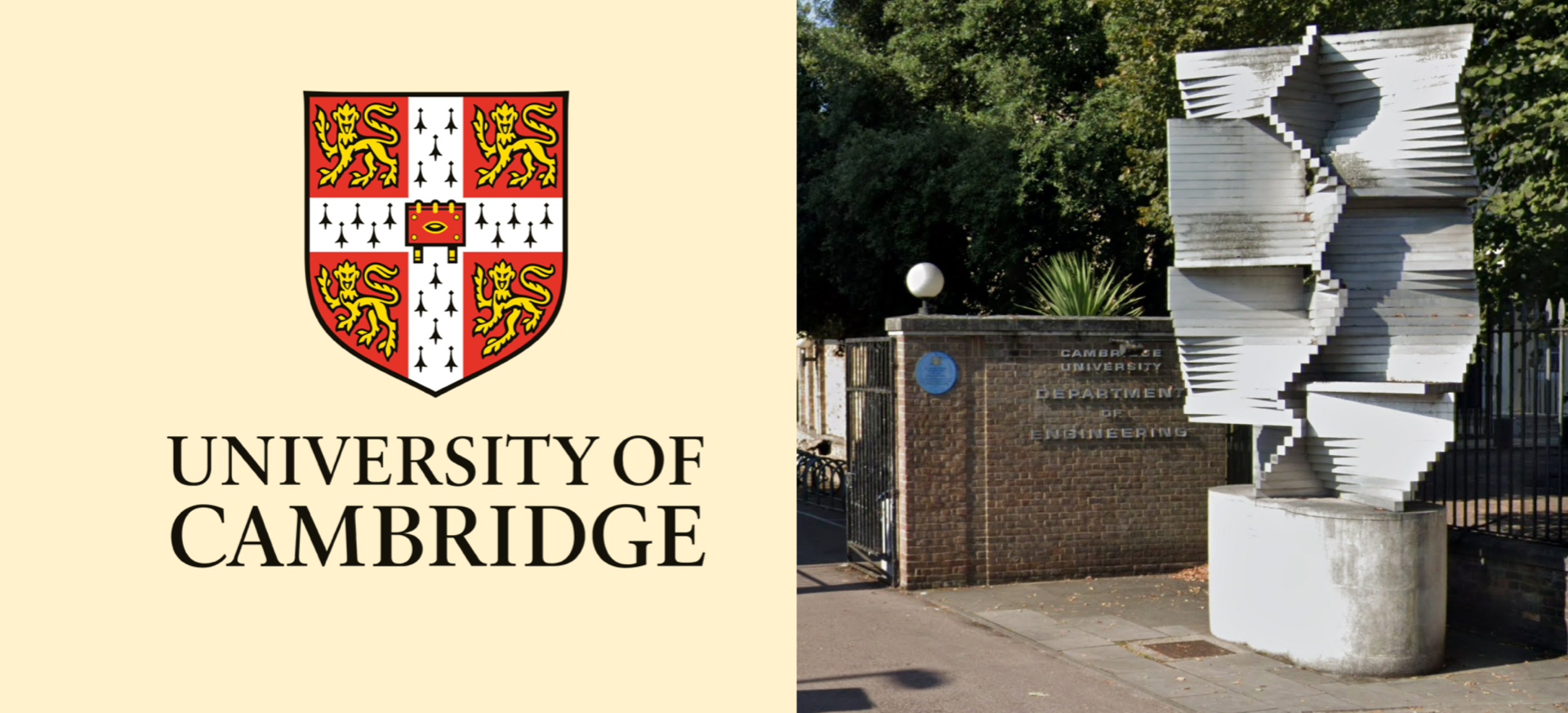Every three months the AgriFoRwArdS CDT get together for a student quarterly research progress review. This meeting is rotated across each of the three collaborating universities, and the May 2022 meeting was hosted by the University of Cambridge.
The day started at 06:00 with a coach from the University of Lincoln to Cambridge. Although the journey takes around 2 hours, due to rush hour traffic in Cambridge everyone just arrived on time for 08:45. The journey was peaceful with the scenic route taken.
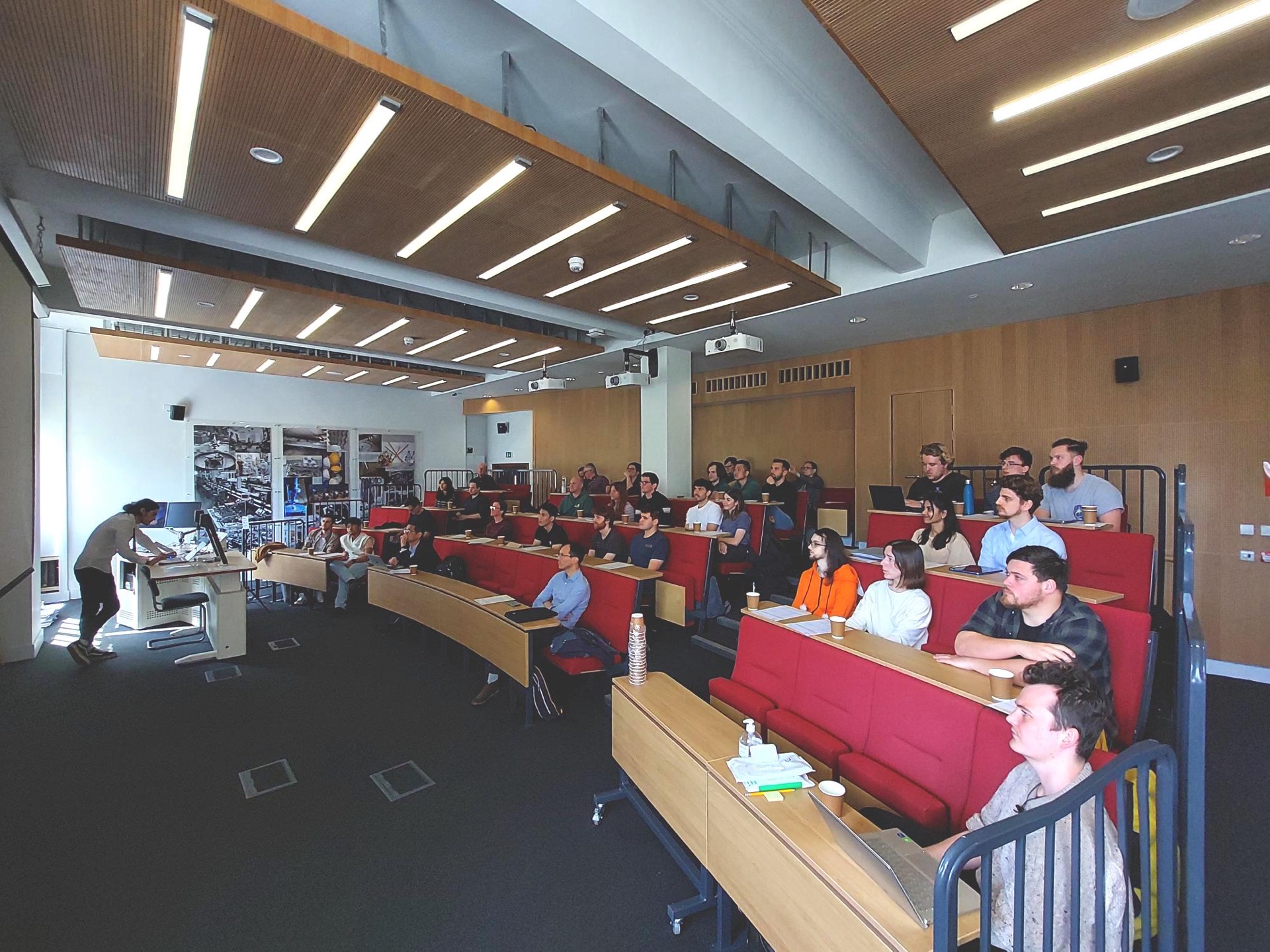
Once at Cambridge and settled in, the program began. Selected students presented their progress to the full CDT team. This provides experience presenting research to a group as well as giving insights into how research is conducted to the new and upcoming students.
The presentations were split into two sessions with Amie Owen, Bradley Hurst, Grey Churchill, Harry Rogers, taking the first session. And Karoline Heiwolt, Mazvydas Gudelis, Roopika Ravikanna and Willow Mandil forming the second session. A 15 minute break was held in between. Jack Foster (Cohort 2) and Elijah Almanzor (Cohort 2) expertly moderated each session respectively.
This particular quarterly review was special because it was the first time that all students and respective supervisors were able to meet each other face to face since the inception of the CDT. The order of the day was arranged by the fantastic Veronica Egorova, with several academics in attendance including Prof Marc Hanheide (CDT Director), Prof Richard Harvey (Co-Investigator), and Dr Fumiya Lida (CDT Deputy Director).
Several PhD student supervisors including Dr Grzegorz Cielniak (Co-Investgator), Dr Petra Bosilj, Dr Amir Ghalamzan Esfahani and Prof Simon Parsons also joined the review.
Mazvydas Gudelis (Cohort 2) spoke about presenting at the event:
“Never in a million years would I have thought that I would get to present my work at the University of Cambridge. Just by doing this I feel like I have already achieved so much, my parents are super proud of me and my confidence at conveying my research to other academics has increased.”
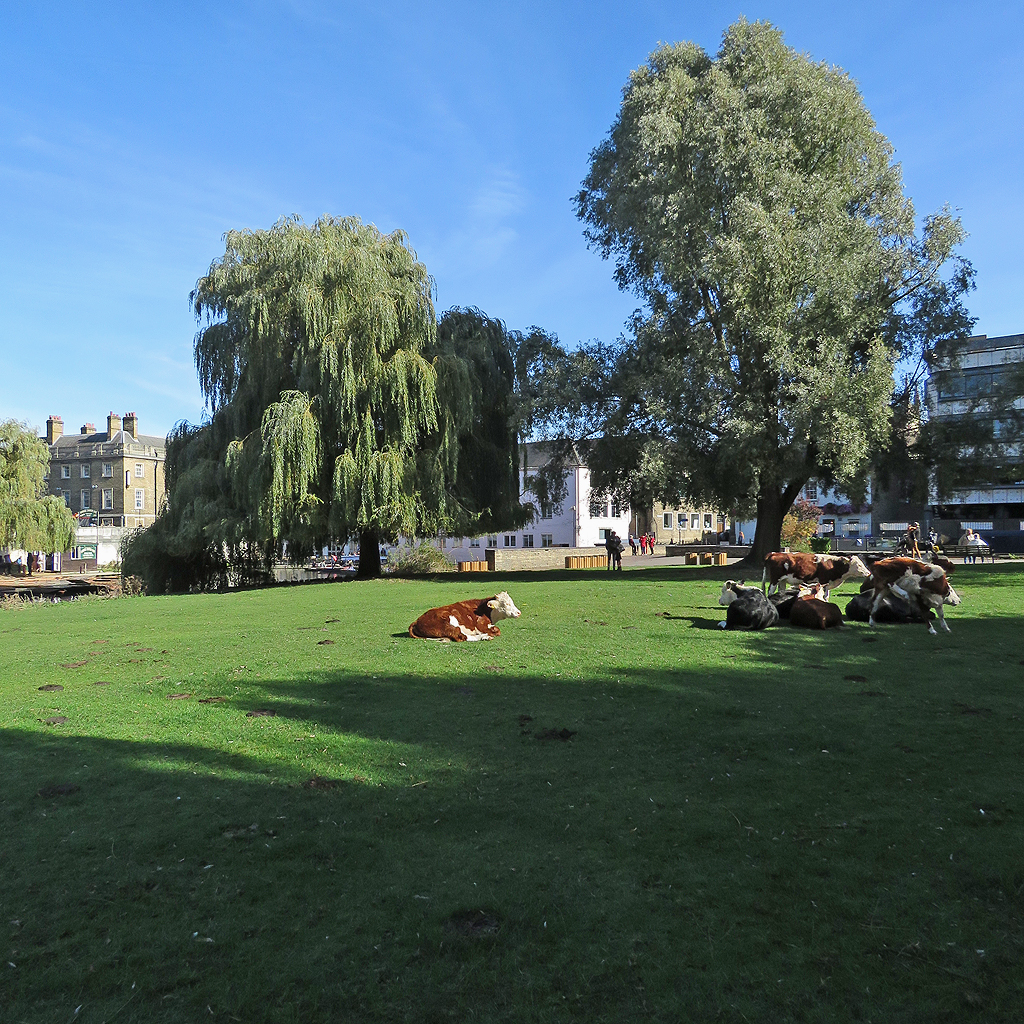
Once the student research presentations were completed, everyone had the chance to take a lunch and have an hours break. Several students took the opportunity to tour Cambridge, and others went to relax in Laundress Green, directly behind the river Cam and with beautiful views of The Backs.
Inspired by the Weeping Willow trees, Xumin Gao (Cohort 3) shared a famous love poem by Xu Zhimo called “Second Farewell to Cambridge”, written in 1928. This poem is now part of China’s national curriculum, taught to all school children as an example of the modern poetry movement in the early 20th century. Xu featured the weeping willow tree in his poem in the following lines:
The golden willow on the bank of the Cam
Stands like a bride in the sunset.
Her reflection shimmers in the water,
And ripples in my heart.
A memorial granite stone in the Backs of King’s College (Xu’s alma mater), dedicated to Xu Zhimo, has inscribed the first and final two lines of the poem and forms one of the most popular tourist destinations in Cambridge.
Once lunch was completed and everyone was refreshed, students and academics headed back to the Engineering Department where a panel discusion hosted by Prof Marc Hanheide took place. This panel involved each of the student presenters using a relaxed informal format for a Q&A session. The topic for the panel was around research and lessons learnt so far. The aim was to allow any questions by the audience to be taken and a shared experience provided. The panel session lasted for around 45 minutes with excellent topics discussed from importance of data sets to interaction with industry sponsors.
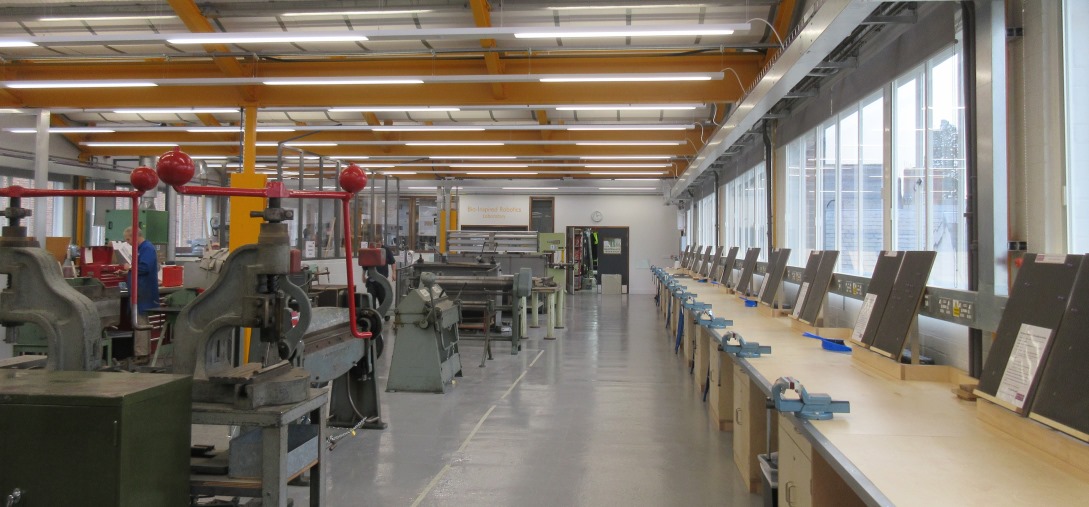
Proceeding the panel discussion a full tour of the Cambridge Engineering Departments facilities, including the Dyson Centre for Innovation and Bio-Inspired Robotics Laboratory (BIRL) took place. End of year exams were also taking place on the day so everyone had to be very quiet throughout the tour, but this also meant the labs were free to widely explore. From sheet metal rollers to 3D printing equipment, the labs were fully furnished within a newly renovated space by made possible by Dyson (Dyson Farming is also an CDT industry sponsor for Jack Foster).

To conclude the day, a tour of the Bio-Inspired Robotics Laboratory (BIRL), with principle investigator Dr Fumiya Lida (also CDT Deputy Director) took place. BIRL investigates how robotics can be improved by taking inspiration from nature, whether that’s learning about intelligence, or finding ways to improve robotic locomotion. This has direct applications in agri-tech around manipulation, grasping and sensing. It was inspiring to see how these robotics systems were being developed and also implemented to solve real world problems.
Once complete the group took the coach back to the University of Lincoln (around a 2 hour journey), with some students heading for a bite to eat and a drink to share their thoughts of the day.
A huge thank you to Veronica Egorova and Dr Fumiya Lida for arranging such a wonderful review and also to the students for sharing their work with the full cohort team. We look forward to the next quarterly review which will be held at the University of Lincoln Riseholme Campus as part of the CDT annual conference taking place on the 22nd to 23rd June 2022.
If you would like to find out more information on the research being done within AgriFoRwArdS, please visit the respective website to the publications page.
